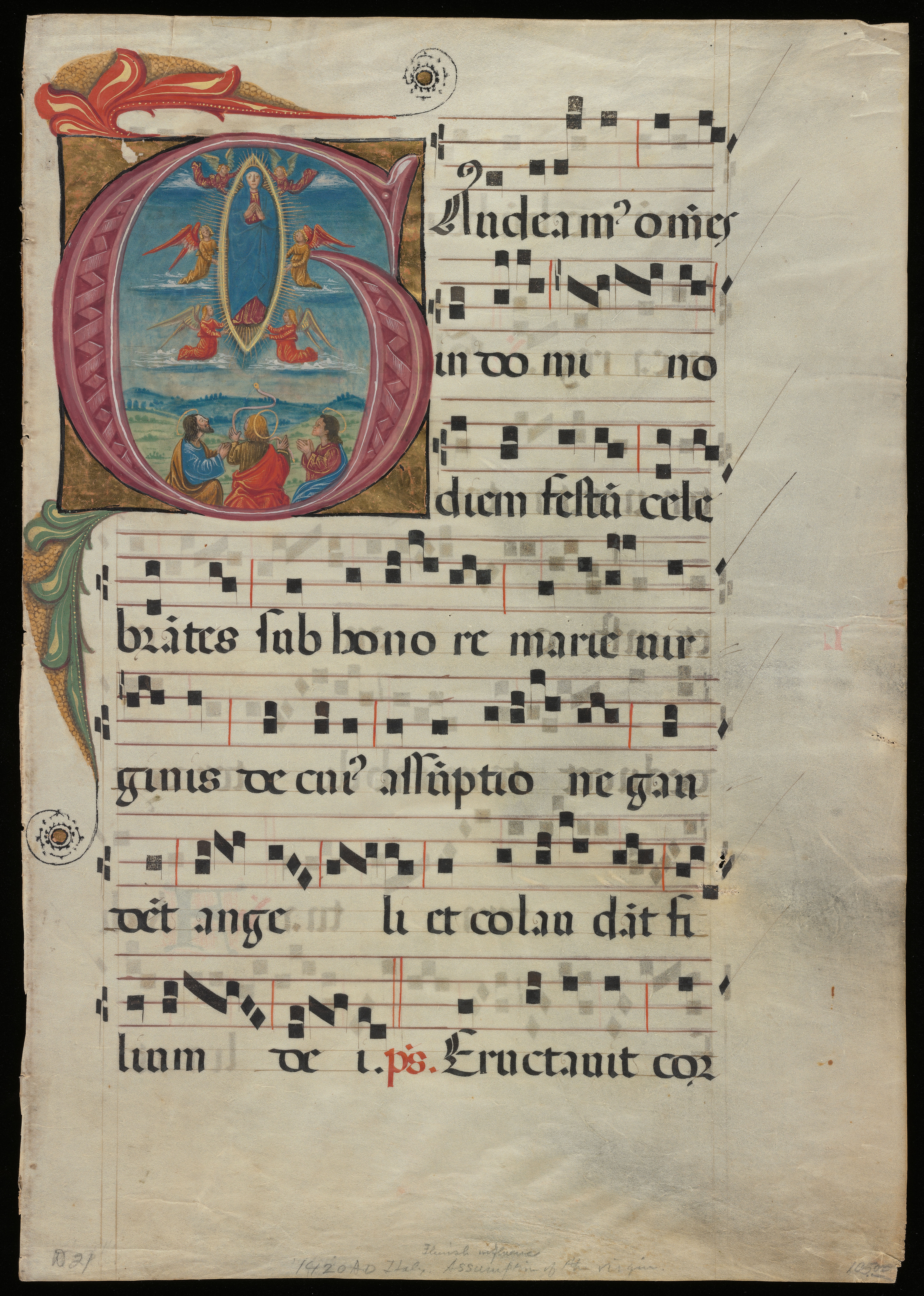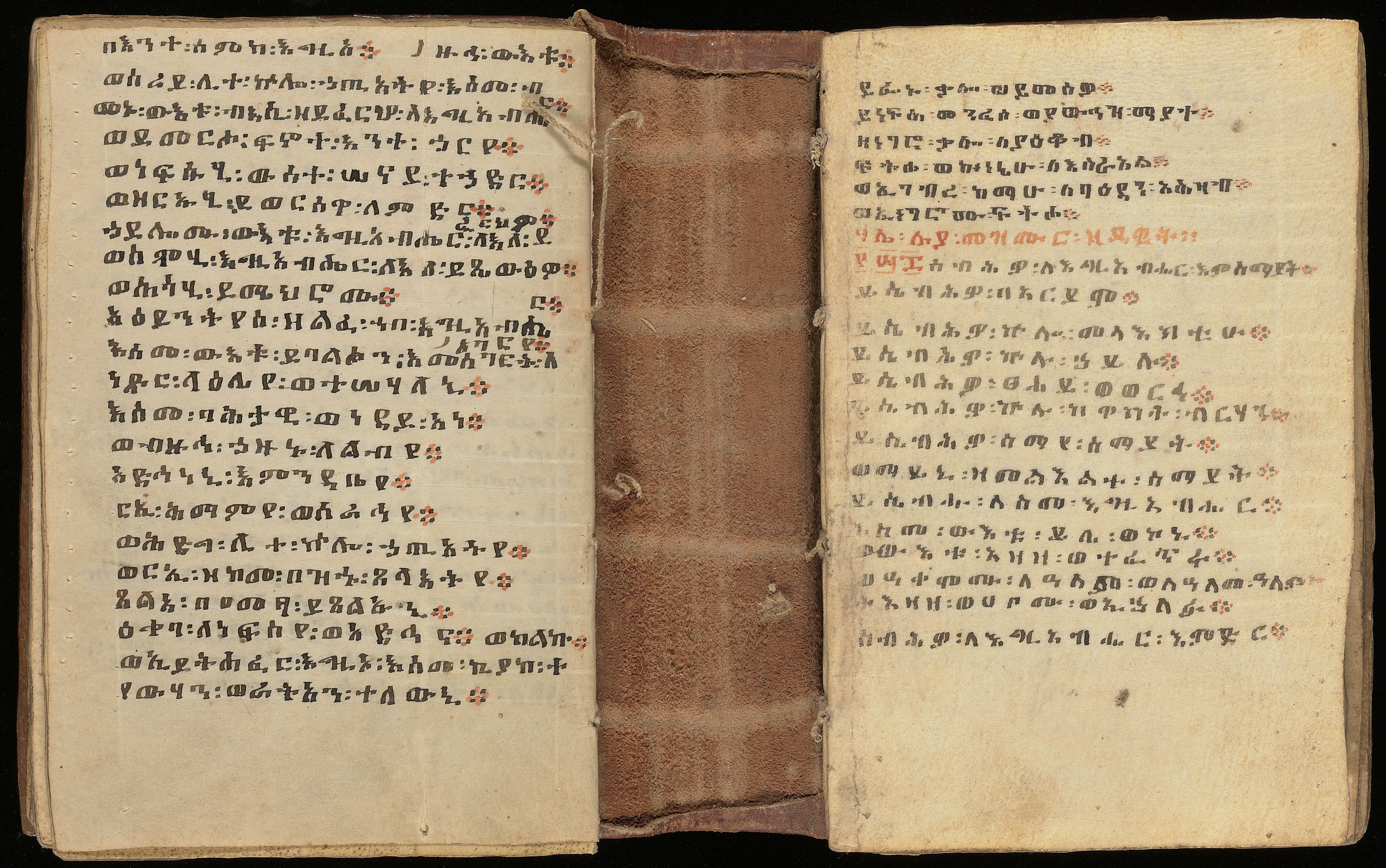
A leaf from a Fifteenth Century Italian liturgical text. The miniature depicts the assumption of Mary.
NEW HAVEN, CONN. — The Beinecke Rare Book & Manuscript Library at Yale University has acquired a treasure trove of medieval and Renaissance books and manuscript fragments that once belonged to scholar and rare book dealer Otto Frederick Ege, who made a controversial practice of dismantling manuscripts and selling the pages individually.
The acquisition adds dozens of manuscript fragments and more than 50 complete manuscripts to the Beinecke Library’s rich collection of medieval books.
“The Beinecke Library is delighted to make this remarkable collection available to scholars and students,” says Raymond Clemens, curator of the library’s collection of early books and manuscripts. “It provides an unprecedented opportunity to study both a wide variety of hundreds of previously unknown manuscripts and fragments, as well as the complex man who collected them.”
The Beinecke purchased the collection from Ege’s grandchildren: Jack, Tom, Susan, and Jo Freudenheim.
“Otto Ege was a scholar and educator whose passion was to make manuscripts and early printed books accessible to non-scholars and scholars alike,” says Susan Freudenheim on the family’s behalf. “The Beinecke’s commitment to preserving his collection and to making the works he collected available to students, scholars and the public, both digitally and in the library, is very much in keeping with Ege’s work.”
Born in 1888, Ege (pronounced EGG-ee) was a longtime professor of graphic design and the history of the book, and later a dean, at the Cleveland Institute of Art. As a young man, he began collecting manuscripts from the Middle Ages and Renaissance. Over the course of his career, he broke apart hundreds of medieval and Renaissance manuscripts and early printed books, selling off the pages, or leaves. He would often sell combinations of leaves from different manuscripts as sets.
He defended his practice of unbinding books in “I am a Biblioclast,” an essay published in the March, 1938 issue of Avocations, a hobby and leisure magazine.
“Surely to allow a thousand people ‘to have and to hold’ an original manuscript leaf, and to get the thrill and understanding that comes only from actual and frequent contact with these art heritages, is justification enough for the scattering of fragments,” he wrote. “Few, indeed, can hope to own a complete manuscript book; hundreds, however, may own a leaf.”
Lisa Fagin Davis, executive director of the Medieval Academy of America says that, in many cases, the books Ege took apart were unique and important.
“Ege left an indelible imprint on the landscape of early manuscripts and books in North American collections; there are more than 25,000 single leaves of early manuscripts in the United States and Canada, and it has been estimated that at least ten percent of these passed through Ege’s hands,” Fagin Davis says.
She says that technology is allowing scholars to reunite Ege’s “scattered leaves” and digitally reconstruct the manuscripts.
“But there has always been a missing piece,” she says. “It was known to scholars that the Ege family retained ownership of a very large collection of leaves and books, but the collection was inaccessible and its contents unknown, the subject of rumor and speculation. The Beinecke Library’s acquisition of this extraordinary treasure trove will yield immediate and important findings and inspire scholars and students for decades to come.”
Clemens says that the more than 50 unbroken manuscripts, which had been on deposit at the Cleveland Museum of Art, are the collection’s highlight.
“It appears that he never intended to break or sell these books and kept them together in a collection that appears to be designed to instruct students in the wide variety of medieval manuscripts. He also had Greek, Arabic, and Ethiopic manuscripts,” Clemens says. “The collection includes complete books in their original bindings, and in some cases, substantial portions of manuscripts that were broken up for sale, enabling us to date the manuscripts with much greater specificity than was possible before.”
The Beinecke has several programs underway researching medieval fragments, mostly recovered from book bindings that recycled medieval parchment when the text was deemed no longer important, often because print began to supplant manuscript copies in the Fifteenth–Sixteenth Centuries.
The collection will be available for research once it is cataloged. The Beinecke plans to host a conference on broken books and fragments in 2018.
The library, at 121 Wall Street, is closed for renovation until September, or more information, beinecke.library.yale.edu or 203-432-2977.


